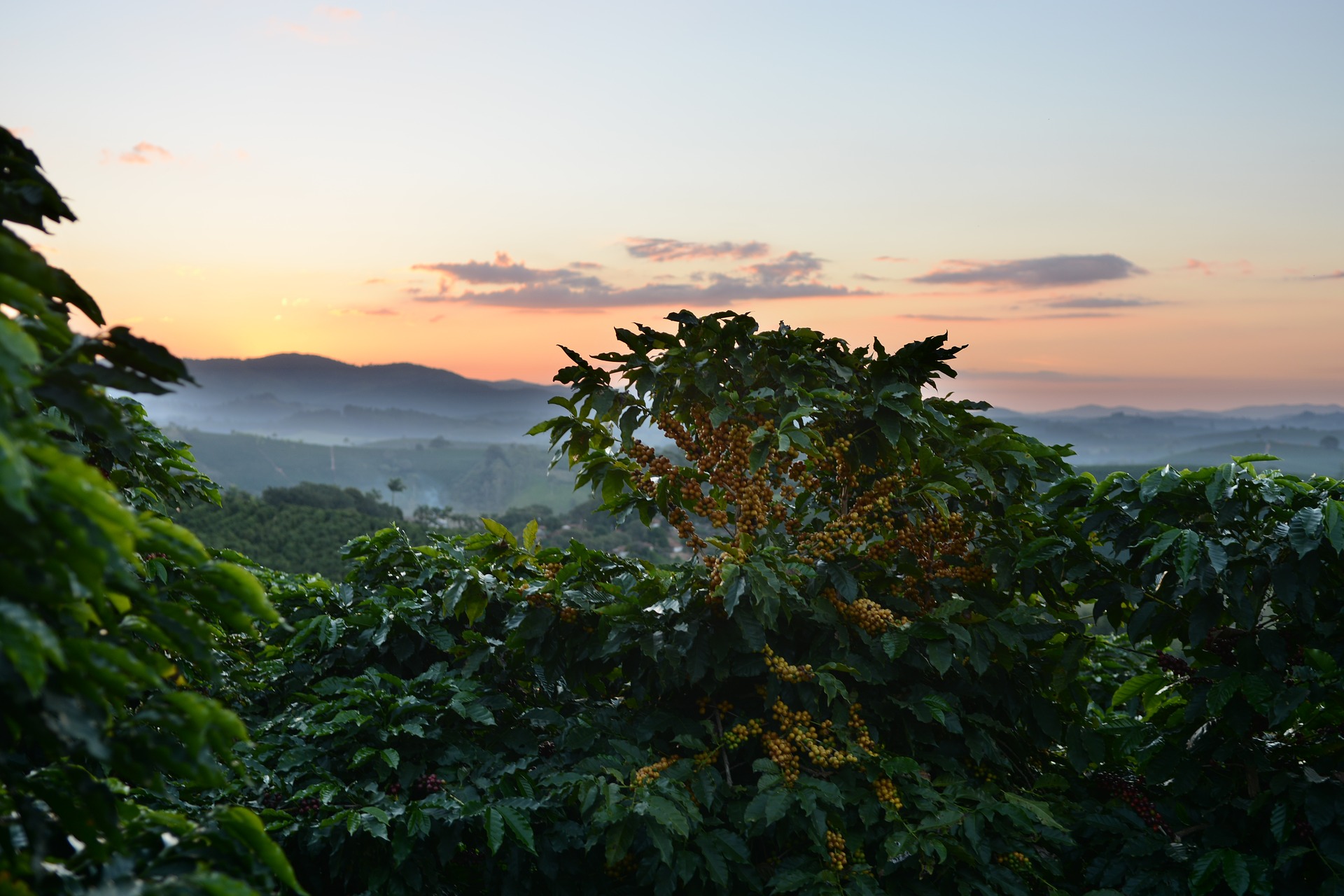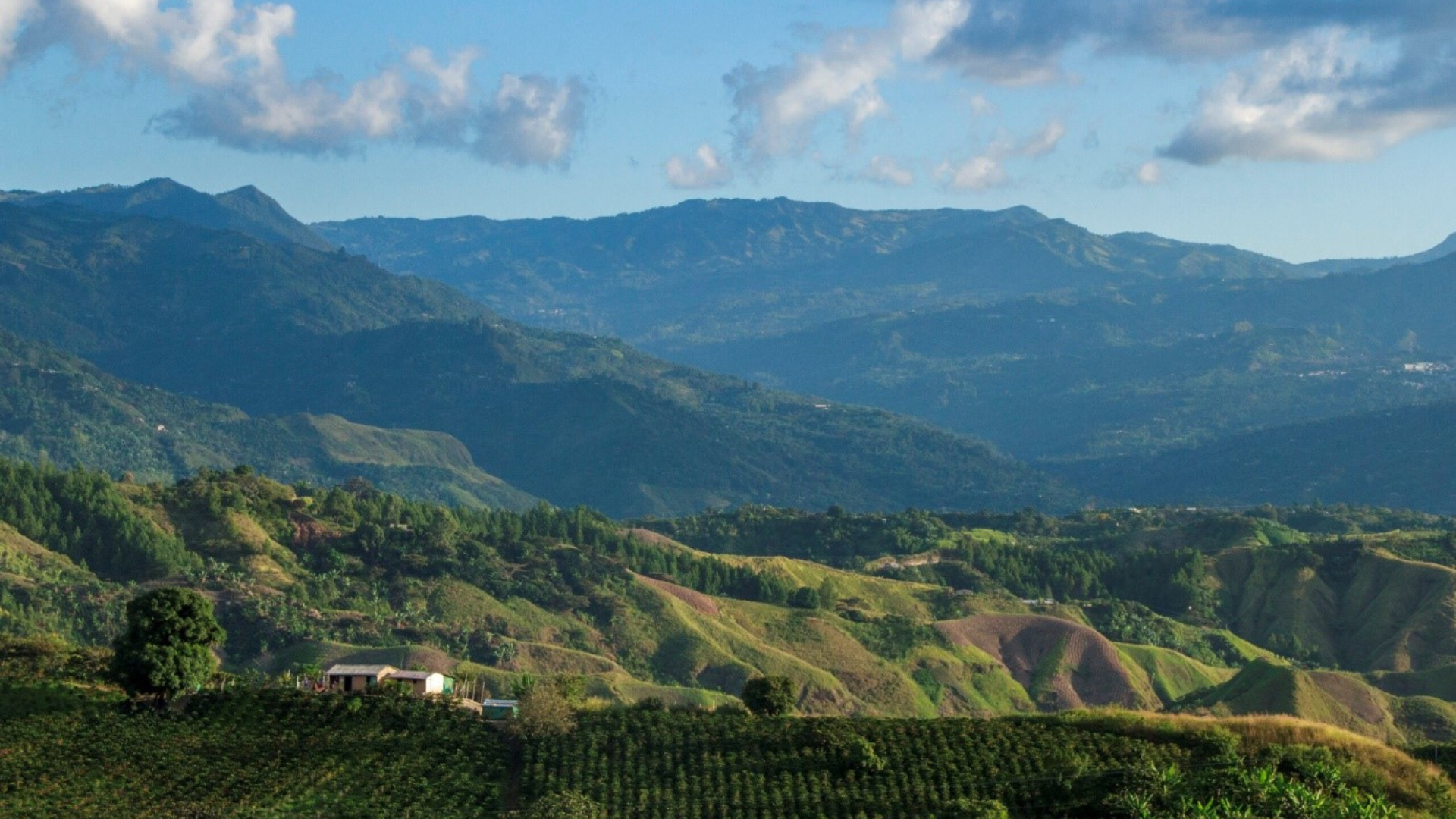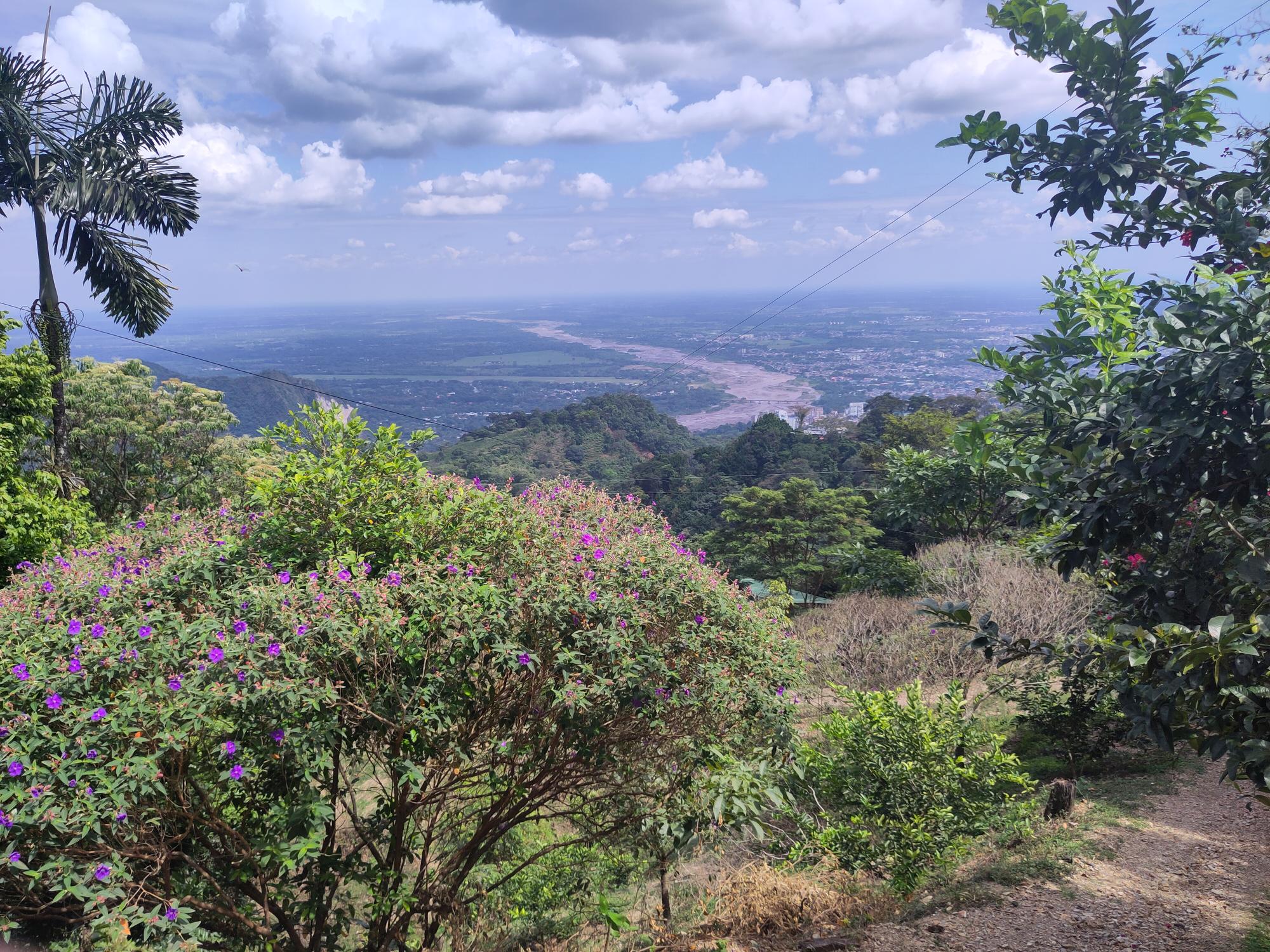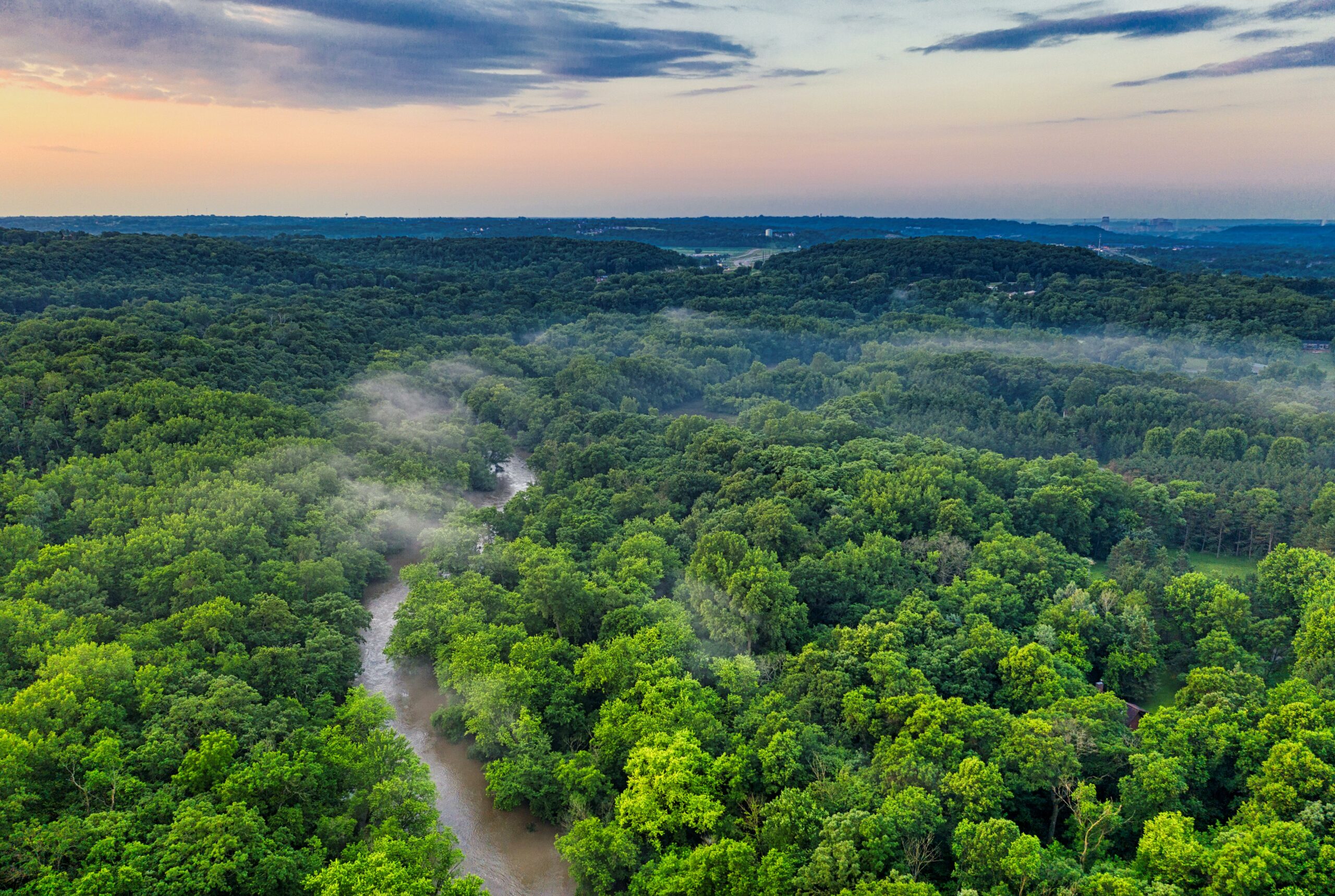Empowering Smallholder Coffee Farmers in Colombia to Claim Deforestation-Free Coffee through Digital Tools Environmental Scope


Project Background
Our project focuses on supporting smallholder coffee farmers in Colombia to prevent their exclusion from global supply chains.
Project Overview
Project title: Empowering Smallholder Coffee Farmers in Colombia to Claim Deforestation-Free Coffee through Digital Tools.
Project objective: Aim of the pilot project is to support Colombian smallholder farmers to understand and comply with the upcoming EU-regulation on deforestation-free products and have continued or even improved access to EU-markets.
Project Region: Cauca in southwest Colombia; Municipalities: Caldono, Piendamó, and Santander de Quilichao.
Project Management: Deutscher Kaffeeverband e.V.
More information about Deutscher Kaffeeverband e.V.
The German Coffee Association is the voice of the German coffee industry and represents more than 360 members – from green coffee traders and coffee roasters, including all well-known coffee brands as well as more than 150 specialty roasters, to decaffeinators, laboratories and logistic companies. The German Coffee Association promotes sustainability in the coffee industry and supports its members in implementing sustainability-related legal obligations with projects such as a joint human rights risk analysis and grievance mechanism.
Project financed by: Business Scout Fund (BSF) – The BSF is part of the Business Scouts for Development (BSfD) programme, which is funded by the German Federal Ministry for Economic Development and Co-operation (BMZ) and implemented by sequa on behalf of GIZ.
Implementing partner: Federación Nacional de Cafeteros de Colombia (FNC).
More information about FNC
The FNC represents Colombia’s 548,000 coffee growers and it is considered one of the largest rural NGOs in the world. FNC’s objectives are to improve the socio-economic wellbeing of Colombian coffee growers, to represent them nationally and internationally and to protect the environment. One of the biggest assets of FNC is the purchase guarantee, which allows farmers to sell coffee at market prices at any time of the year. About 18% of the coffee produced in Colombia is commercialized by the FNC.
Advising partner: Gesellschaft für International Zusammenarbeit (GIZ).
Project period: 05/2023 – 12/2023
Key Results
Strengthened coffee farmers in their knowledge about EUDR and capacity in adoption of sustainable agriculture practices:..
- 1179 farmers were trained in full-day sessions on biodiversity, forest protection and water conversation.
- 1196 farmers received individual recommendations for the ecological pursuits on their farms such as the implementation of agricultural systems.
- Comprehensive booklet and poster as educational material developed which can also be used in other regions of Colombia to train farmers.
Collection of geolocation data of coffee farmers via mobile application and conduction of deforestation analysis:
- 1196 farmers had their 1321 coffee plots mapped with easy-to-use mobile application.
- 99% of the mapped farms were found deforestation-free after detailed analysis – facilitating market access for the farmers.

Deforestation is a major driver of climate change and biodiversity loss. It is largely caused by agricultural expansion and increasing international demand for agricultural commodities. The EU Deforestation Free Products Regulation (EUDR) includes coffee in the scope of targeted commodities requiring extensive due diligence measures for importing and trading green coffee on the EU market. More specifically, operators and traders must provide the geocoordinates of the plots of land where the respective coffee was grown and a proof that this area was not subject to deforestation. Complying with these regulations poses new challenges, especially for a supply chain composed of 12.5 million smallholder farms, out of which 85% are smaller than 2 ha, as it is the case for coffee.
Therefore, our project focuses on supporting smallholder coffee farmers in Colombia to prevent their exclusion from global supply chains. By introducing user-friendly digital tools and innovative technologies, we aim to raise awareness, enhance market access, and empower farmers to demonstrate their commitment to producing coffee in a sustainable and deforestation-free manner.
Project Region
The project focusses primarily on the Cauca region in southwest Colombia, encompassing three municipalities: Caldono, Piendamó, and Santander de Quilichao. The Cauca region is renowned for its production of high-quality coffee and holds significant potential for sustainable coffee farming. However, the region also faces socioeconomic challenges, making it a priority area for support and intervention.
The Cauca region has a complex history intertwined with Colombia’s armed conflict. Historically, the presence of guerrillas in the region hindered the establishment of institutions and development initiatives. However, in recent years, the region has made significant progress in terms of peacebuilding and security.
With over 90,000 families involved in coffee cultivation across 93,000 hectares of Arabica coffee plantations, Cauca represents a substantial coffee-growing community. The region is characterized by a diverse population, including Afro-descendants, Nasa indigenous people, and mestizo communities. By implementing our project in this region, we aim to improve the livelihoods of coffee-growing families, support their resilience, and ensure their continued access to European markets.


Projects Measures
In the first phase of the project GRAS introduced the innovative digital tools—including a mobile mapping app and a deforestation risk assessment database system—to the local implementing partner FNC. Through a series of targeted workshops, the project partners worked closely to identify the specific needs and requirements, ensuring that the solutions are tailored to local contexts and project objectives. In collaboration with the German Coffee Association, project partners also selected the farmers and beneficiaries who participated in the initiative.
Building on these foundations, GRAS then customised its digital systems to meet the defined requirements. This included gathering and processing essential data to assess smallholder farm areas for deforestation risks and adapt both the database system and the mobile mapping app in line with the latest EU regulations.
A comprehensive training phase followed, where GRAS delivered hands-on instruction on using the customised database system and mapping app. Employing a Train-the-Trainer approach, six local promoters were equipped with the skills to maximise outreach and impact.
FNC developed a highly informative booklet and poster as educational material which were distributed to farmers during trainings. Training Sessions were held on the implications of the upcoming EU regulation for smallholder farmers, as well as the broader importance of preventing global warming and protecting biodiversity and forests.
Once the digital systems were in place, data collection and analysis commenced. GRAS provided the tailored digital tools to the local implementation partner FNC, enabling efficient onsite data gathering using the mapping app. This included capturing farm outlines, agricultural practices, and other key information, even in offline settings. FNC ensured careful planning and mobilisation of resources for the selected smallholder farmers, while GRAS offered ongoing technical support. After data collection, FNC managed and visualised the information on the online platform, which features automated risk assessment to verify and document deforestation-free farm areas. Additionally, the system generates detailed agronomic reports that support technical assistance programs, helping producers adopt more sustainable agricultural practices.
Through this integrated approach, the project empowers local stakeholders with digital tools, knowledge, and actionable insights to promote sustainable agriculture and protect vital forest resources.

Discover the Project in Pictures!

Further Information